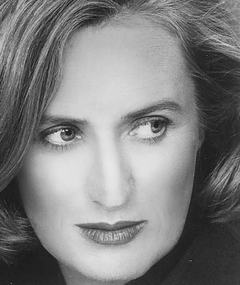
Campion, Jane |
Date of birth
30 April 1954, Waikenae, New Zealand
Jane Campion (April 30, 1954, Waikenae, New Zealand )
Rising to prominence in the 1990s, New Zealand director Jane Campion is known as one of the contemporary cinema’s most distinctive personalities.
Her feature films, though varied in quality, have been united by their compelling depictions of the lives of women who are in some way outside of society’s mainstream.
Campion’s films explore what makes these women different, and the repercussions of their refusal, or inability, to conform.
Thanks to this subject matter, Campion has often been labeled a feminist director, a label that, while not inaccurate, fails to fully capture the dilemmas of her characters and the depth of her work.
“What I have learned from my work up to now, is to try to be open, but also protect myself by not letting the good and the evil get too much importance.”
Born in Waikenae, New Zealand, on April 30, 1954, Campion was the product of a theatrical family. Her mother, Edith Campion is an actress and writer, while her father, Richard, is a theater and opera director.
Educated at Wellington’s Victoria University, where she earned a B.A. in structural arts, Campion went on to study fine arts at London’s Chelsea School of Arts.
Her interest in filmmaking led her to begin making short films in the late 1970s; one of these, Tissues, led to her acceptance into the Australian Film and Television School in 1981.
After earning her degree in direction, she took a job with the Australian Women’s Film Unit. Campion began directing short films in the early 1980s.
Her short films garnered a fair amount of acclaim and were widely screened on the international film festival circuit. One of these shorts, Peel, won the Palme d’Or for Best Short Film at the 1986 Cannes Festival.
Campion made her feature directorial debut in 1985 with Two Friends, which was made for Australian television. The film, told in reverse narrative that allows its protagonists to grow younger as the story progresses, depicted the connection between a pair of teenagers and the changes they experience in their friendship.
Campion followed it up four years later with Sweetie, her first theatrical feature. A very, very black comedy about the strained relationship between an overweight, fairly insane young woman, her meek, skinny sister and the rest of her family, the film received a markedly love-it-or-hate-it response.
In contrast, Campion’s subsequent effort, An Angel at My Table (1990), earned an incredibly enthusiastic response, one that heralded her breakthrough as a director. Taken from a three-part miniseries made for New Zealand television, the film tells the story of renowned New Zealand writer Janet Frame, who endured years of institutionalization after being falsely diagnosed with schizophrenia.
Rather than going for easy cliches about the triumph of genius over adversity, Campion chose a simple, but never simplistic, approach to her material, using unsentimental honesty to blend comedy, tragedy, naturalism, and surrealism.
Her resulting portrait of a woman’s intellectual evolution won great acclaim and a Special Jury Prize at the Venice Film Festival.
With The Piano (1993), Campion traded intellectual evolution for sexual and erotic development. A beautifully told, deceptively simple story, it had as its protagonist Ada (Holly Hunter), a willfully mute Scottish widow who travels with her nine-year-old daughter (Anna Paquin) to New Zealand, where she enters into an arranged marriage with a taciturn, emotionally distant farmer (Sam Neill).
Her subsequent affair with her neighbor (Harvey Keitel), which is carried out under the guise of piano lessons, was depicted with scorching yet understated passion, and ably underscored Ada’s own multifaceted emotional and erotic development.
One of the year’s most celebrated films, The Piano put Campion at the forefront of contemporary cinema. It earned a score of international awards, including the Cannes Festival’s Palme d’Or, the French César for Best Foreign Film, a number of Australian Film Institute Awards, and Oscars for Hunter and Paquin’s performances as well as Campion’s original screenplay.
Campion followed The Piano with a 1996 adaptation of Henry James’ Portrait of a Lady. A moody, highly stylized piece, it fused the director’s proclivity for surrealist fantasy with her fascination with strong women chafing against the bonds of society, and featured stellar performances all around, particular from Nicole Kidman as Isabel Archer.
It received mixed, generally lackluster reviews, however, and when compared to The Piano, it was seen as something of a disappointment. Campion resurfaced in 1999 with Holy Smoke.
Starring Kate Winslet as a young Australian woman whose family brings in a deprogrammer (Harvey Keitel) to “cure” her of the cultish spiritual teachings she picked up on a trip to India, it revolved around yet another strong, vibrant woman’s turbulent relationship with the society surrounding her. --Allmovie
Selected filmography of
Campion, Jane
2021
The Power of the Dog (2021)
2009
Bright Star (2009)
2003
In The Cut (2003)
1999
Holy Smoke (1999)
1996
The Portrait of a Lady (1996)
1993
The Piano (1993)
1990
An Angel at My Table (1990)
1989
Sweetie (1989)
1986
Two Friends (1986)
1982
Peel (1982)
|

